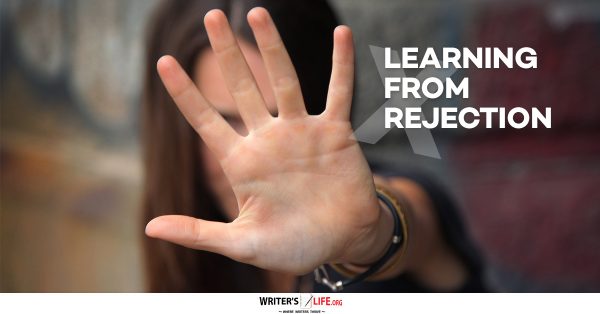- How To Tackle Jealousy In Creative Writing
- Common Submission Mistakes
- How To Stop Your Blog Becoming Boring
- The One Thing Every Successful Writer Has In Common
- How To Make Yourself Aware Of Publishing Scams
- Why Almost ALL Writers Make These Grammar Mistakes At Some Point
- 5 Tips For Authors On How To Deal With Rejection
- Top Mistakes to Avoid When Writing a Novel
- How to Avoid Common New Writer Mistakes
- 10 Mistakes New Fiction Writers Make
Learning From Rejection

Here are just some of the rejections that famous writers received before they made it big:
F Scott Fitzgerald was told his novel would be good if he got rid of “that Gatsby character”. Dr Seuss was told that his writing didn’t have appeal because it was “too silly”. William Golding’s Lord of the Flies was described as “dull” by one publisher, who no doubt later spent many years kicking himself in the shins.
The one thing that all these writers have in common and the reason we delight in the irony of these stories is that instead of listening to those that criticised them and giving up, they refused to believe it, kept trying and eventually found publishers who could see their genius and take them seriously.
However, we must face facts. The majority of people who attempt to get their books published, by a traditional publisher, will be unsuccessful. It’s a fact that we cannot ignore. What is important to remember, before we get too downhearted, however, is that the ones who do find success don’t just do it on luck alone.
What every writer needs to remember when they receive a rejection letter is; either the work simply is not good enough, or the publisher isn’t the right publisher for it. Now while these may seem like two very different outcomes, in fact, they are not. Because if you want to be a successful writer the solution is the same - you must keep trying.
Agents and publishers aren’t going to like every good book that lands on their desks, and it's important here to stress the word good. Your book might be extremely well written and have a tight, faced-paced plot and engaging characters, but if that agent or publisher simply doesn’t ‘like it’ there is nothing more you can do. You must have picked up a best seller at some point in your life and thought ‘My God this is boring!’ Well so do agents and publishers - they are trained to recognise the traits that will sell a book, but sometimes, due to personal tastes, they simply won’t be able to see them. If that’s the case, there is nothing else you could have done.
Because of this, you’ll waste far less of your time if you research the agents and publishers you send your book to. Make sure that their tastes are the same, that they have published books similar to yours in the past. Most agents and publishers make this particularly easy for you, and state on their websites what they are looking for. If they don’t work in your genre or have never published a book remotely similar to yours, do everyone a favour and don’t bother sending your manuscript in on the ‘off-chance’ they might suddenly do a 180 and decide to go for it.
We can all accept that not everyone will like our work. Admitting to ourselves that perhaps our work is not yet good enough for publication is far more challenging. However, learning to recognise when your book needs more work is crucial to your success. It might be that you need to make a few adjustments, or it might be that you need to start over, but if your book has been rejected time and time again, you have to decide whether you are willing to continue to work on it, or simply to move on to your next project. Either is fine, as long as you are always moving forwards.
Being rejected is tough, but it really can be a good way to learn and improve. Try to put yourself in the publisher's shoes, ask yourself, why this person might have rejected your book and whether, therefore, you could have done anything about it. If you are lucky enough to get anything other than a textbook response, or worse, no response at all, then really take on board the feedback you have been given. If an agent or editor has taken the time to write to you personally, this is hopeful, and it is well worth considering their feedback and advice.
Remember, it only takes one person who has the power to publish your book to say yes to you to change your life. When you get that yes it won’t matter a jot whether your book has been rejected by one hundred others. So take every rejection in your stride, learn as much as you can, and always, always keep trying.

Bethany Cadman -author of 'Doctor Vanilla's Sunflowers'


























